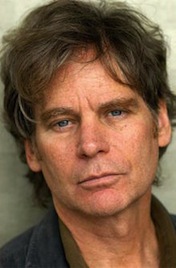Career
Moore's first novel, Prisoner in a Red-Rose Chain [1] won the Commonwealth Writers' Prize for Best First Book in 2000.
Moore's second novel, The Memory Artists, [2] (published 2004 by Viking, 19 translations) won the Canadian Authors Association Prize for fiction in 2005. It follows Noel Burun, a psychology graduate student with synaesthesia and hypermnesia, as he sets out with three equally eccentric friends to find a wonder-drug cure for his mother's early-onset Alzheimer's. "Moore explores every facet of memory," according to Joanne Wilkinson in Booklist, "as both a burden and a blessing--in this delightful and inspired story." [3] In the New York Times Book Review, Michael J. Agovino described The Memory Artists as "a rich novel, erudite and funny, as much about brain chemistry, the wellness industry and poetry as it is about memory." Agovino concludes that "The Memory Artists is a pleasure to read; it's strangely uplifting to spend time with these flawed but humane characters." [4]
In Moore's third novel, The Extinction Club, [5] (published 2010 by Penguin, 12 translations), Nile Nightingale is on the lam from false charges of child abduction pressed against him by his ex-girlfriend in New Jersey. When he attempts to hole up in an abandoned church in the Laurentians, he encounters the beaten and bloodied Céleste, a fourteen-year-old, animal-rights activist who has been squatting there. Recently orphaned of her last living relative, her grandmother, Céleste turns to Nile for her survival and to continue her battle against poachers ready to hunt the rare North American cougar to extinction. "At its best, The Extinction Club is gripping and incisive," according to the Globe and Mail review by Darryl Whetter, who also credits the novel with integrating "philosophical inquiries into violence and predation with an undeniably dynamic plot." [6]
Academic Reception
Academic treatment of Moore's work, thus far, has focussed on its relation to Quebec literature and, more specifically, to Anglo-Quebec literature. For example, in his essay "Is There an Anglo-Québécois Literature?" Gregory J. Reid notes that "Moore's Prisoner in a Red-Rose Chain includes French-speaking characters and, therefore, code shifting" and that the novel problematizes "the minority status of English in Quebec [. . .] through exaggeration and comic irony rather than earnest denial." [7] In "A Context for Conversation? Reading Jeffrey Moore's The Memory Artists as Anglo-Quebec Literature," Patrick Coleman compares the novel to Robert Majzels' Hellman's Scrapbook and Jacques Godbout's Les Têtes à Papineau and concludes that "Further comparative studies along these lines, in which a particular work is confronted with others from both different languages and literary traditions, would sharpen our understanding of the problematic relationship between theme, style and location in Anglo-Quebec literature." [8] In "Jeffrey Moore's The Memory Artists: Synaesthesia, Science and the Art of Memory," Marc André Fortin analyzes the novel in terms of the interplay between science and literature. [9]
This page is based on this
Wikipedia article Text is available under the
CC BY-SA 4.0 license; additional terms may apply.
Images, videos and audio are available under their respective licenses.
